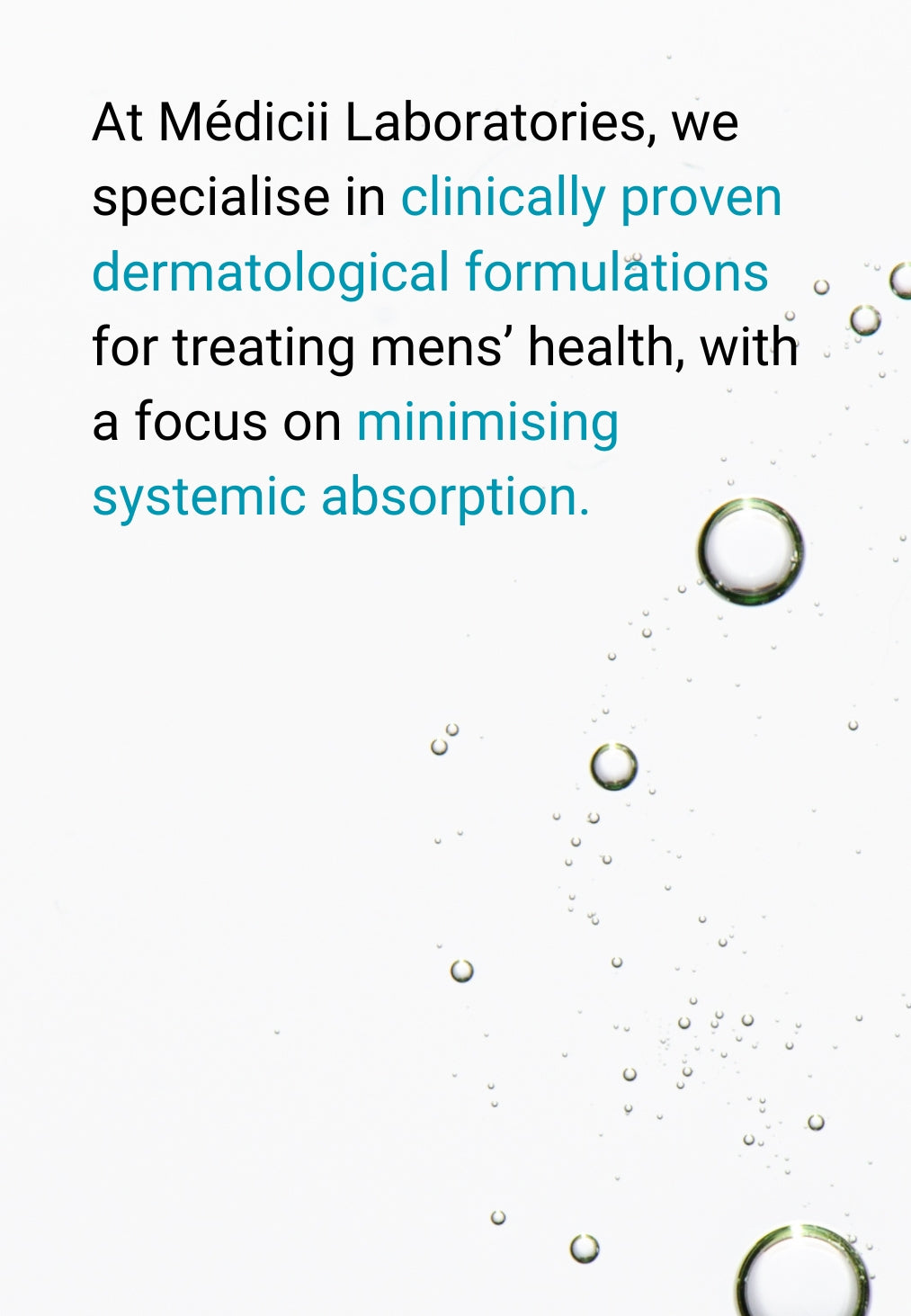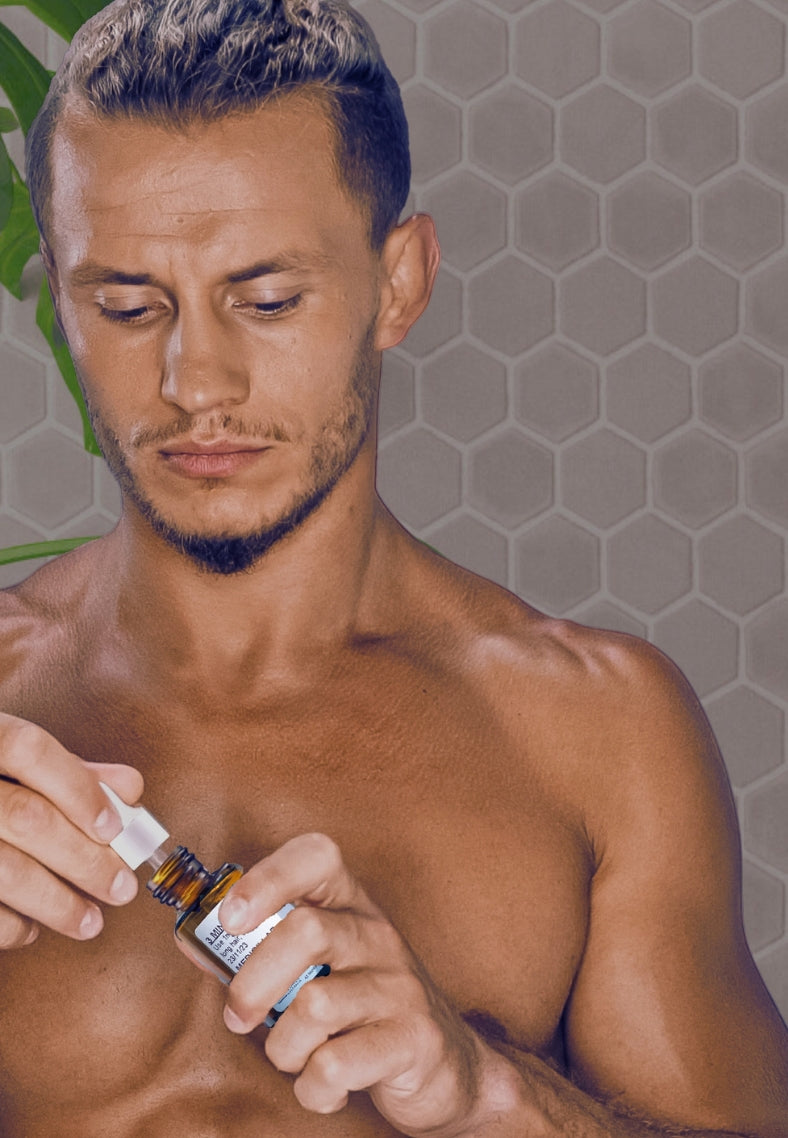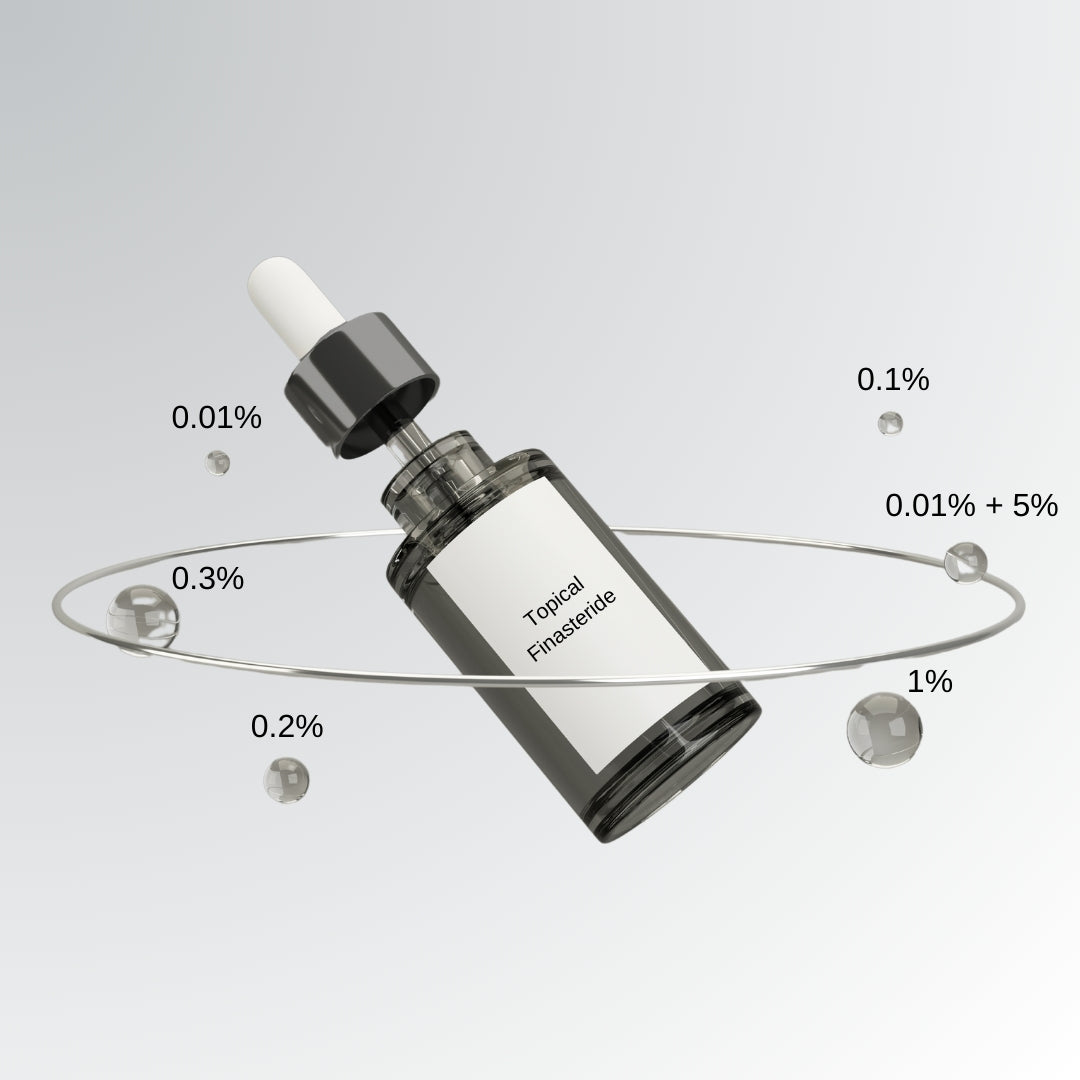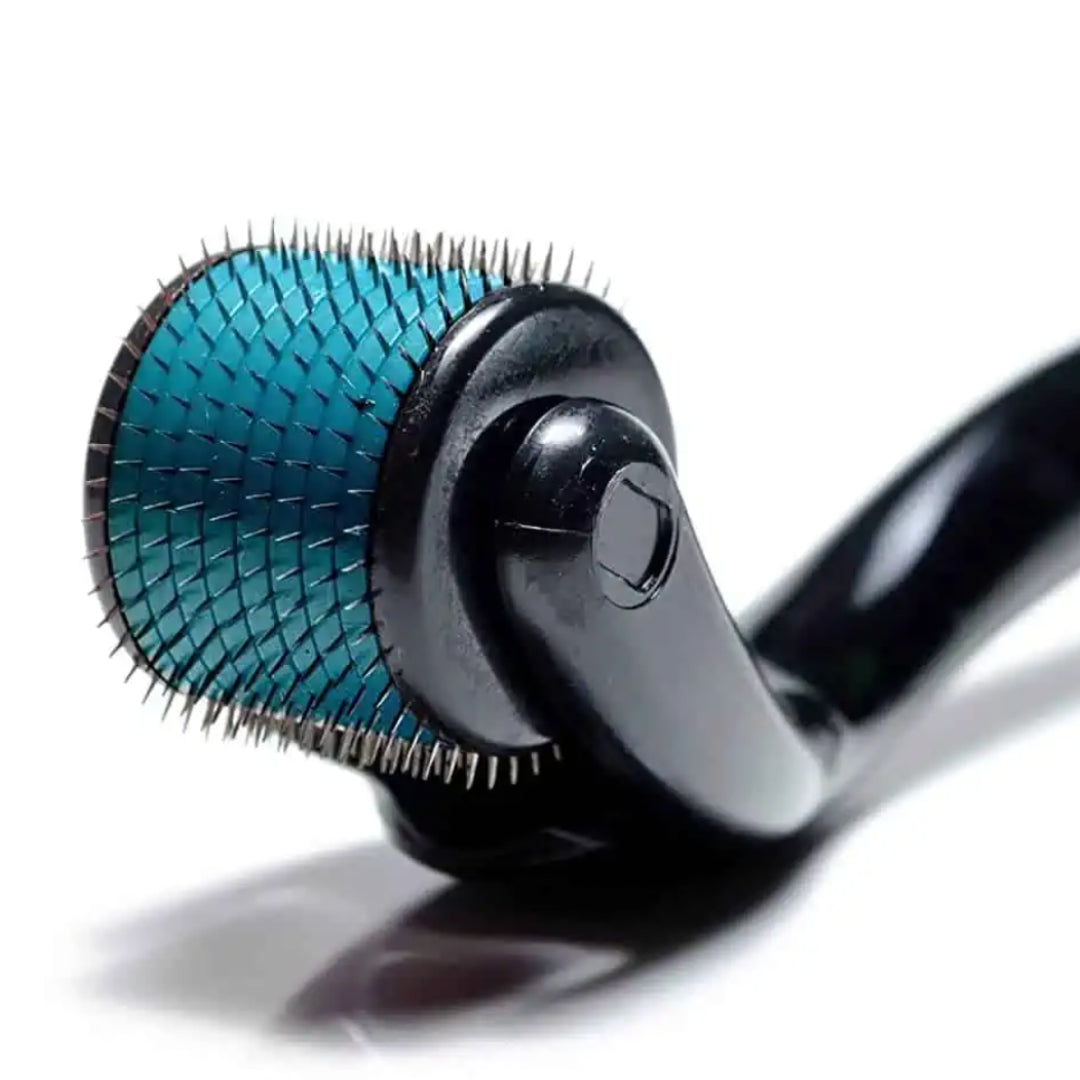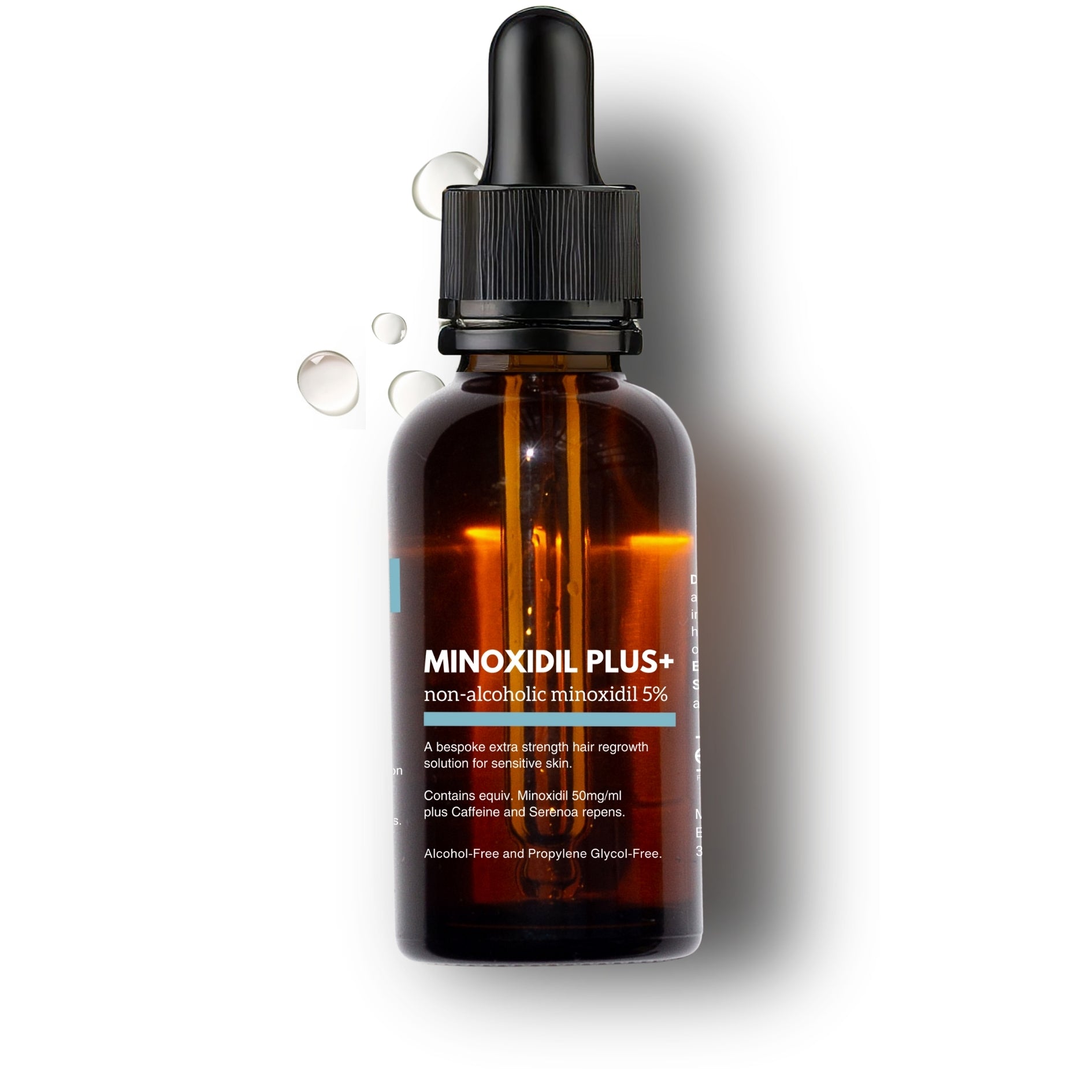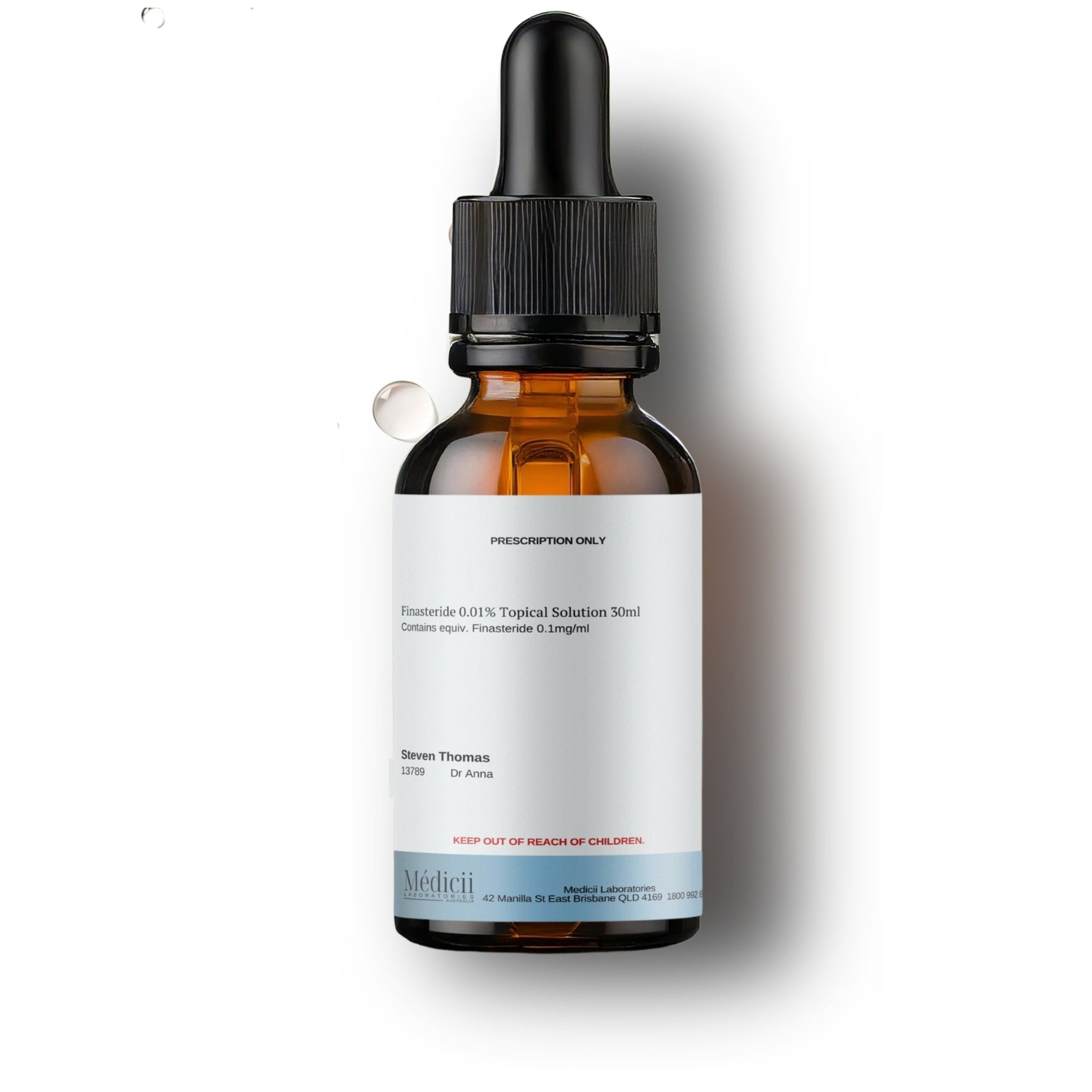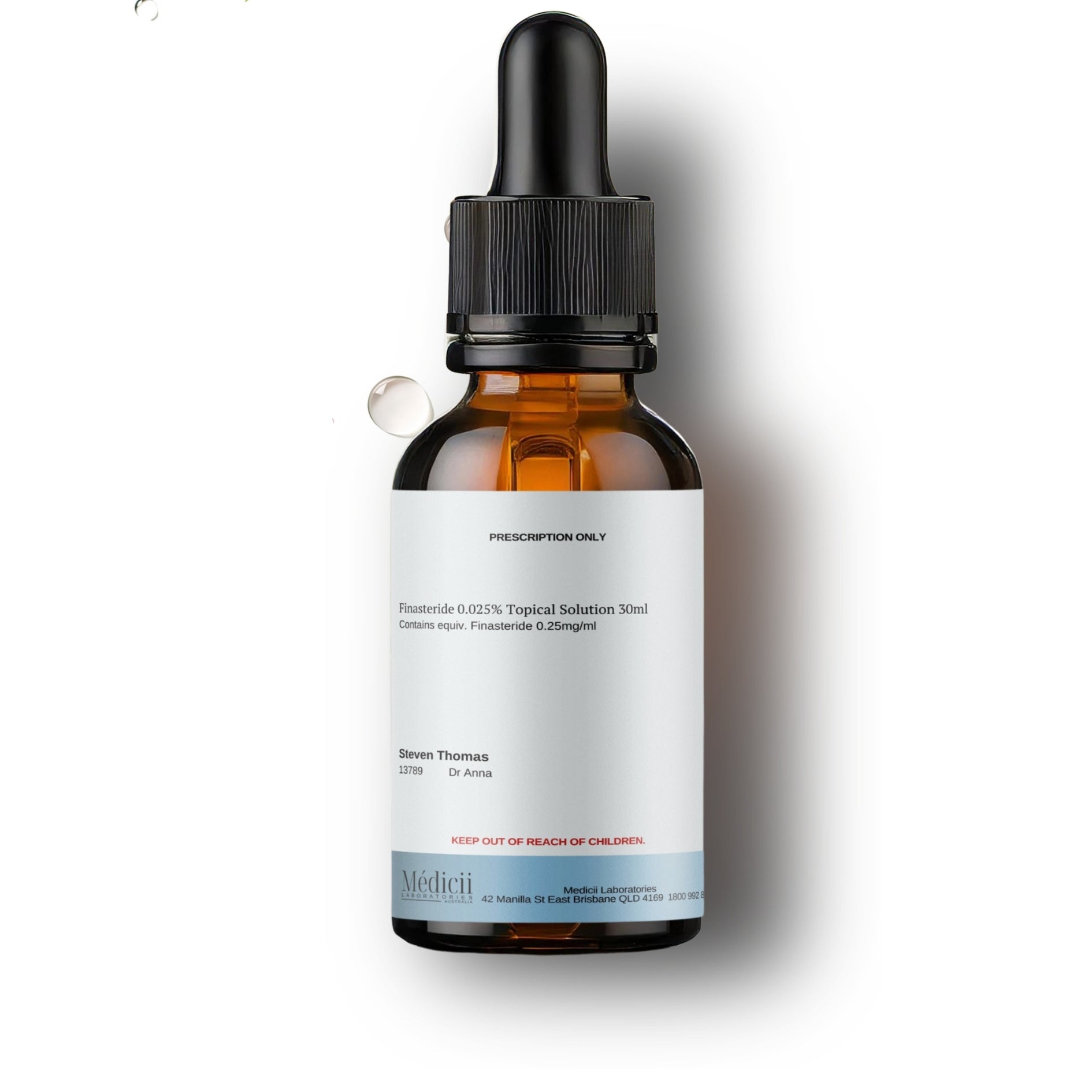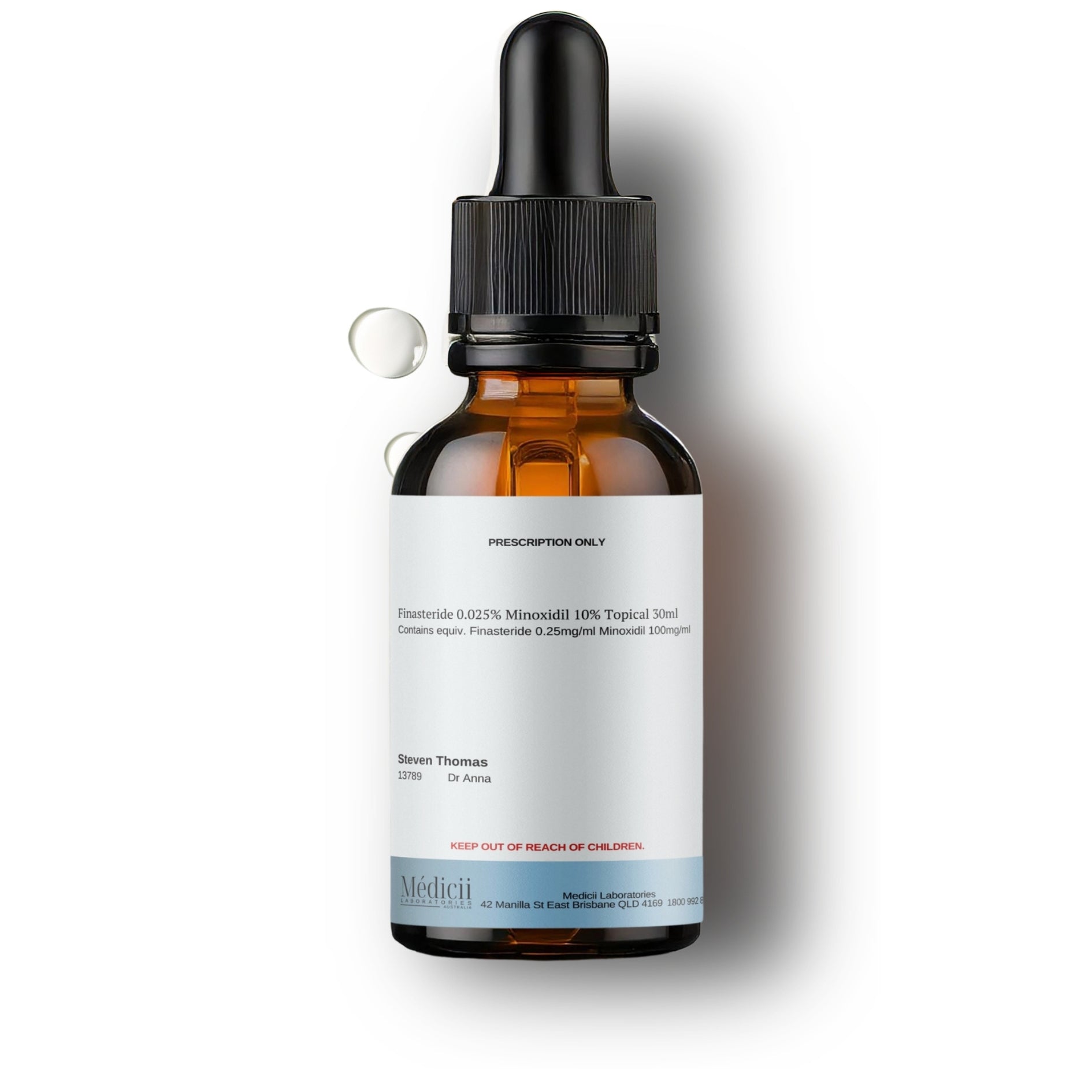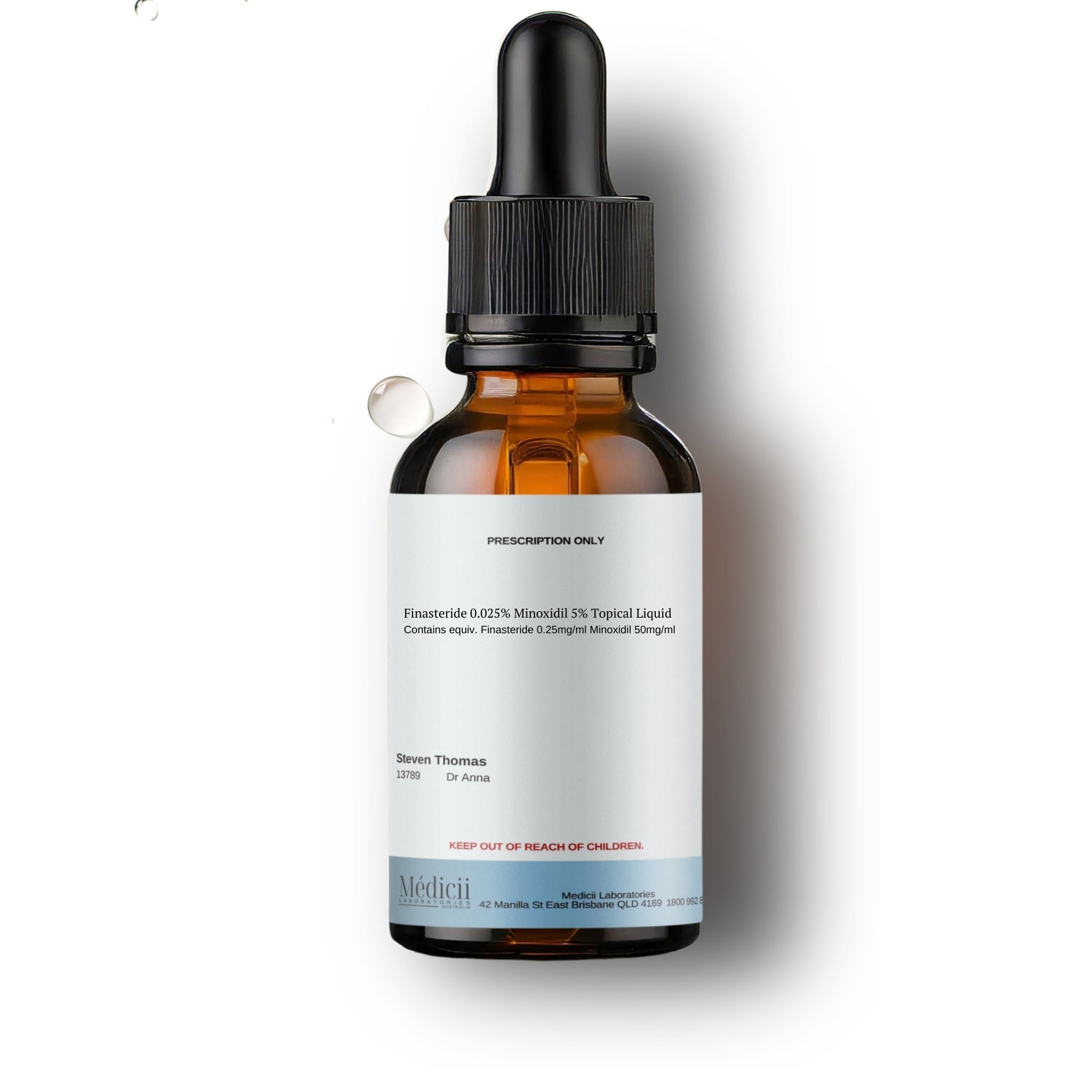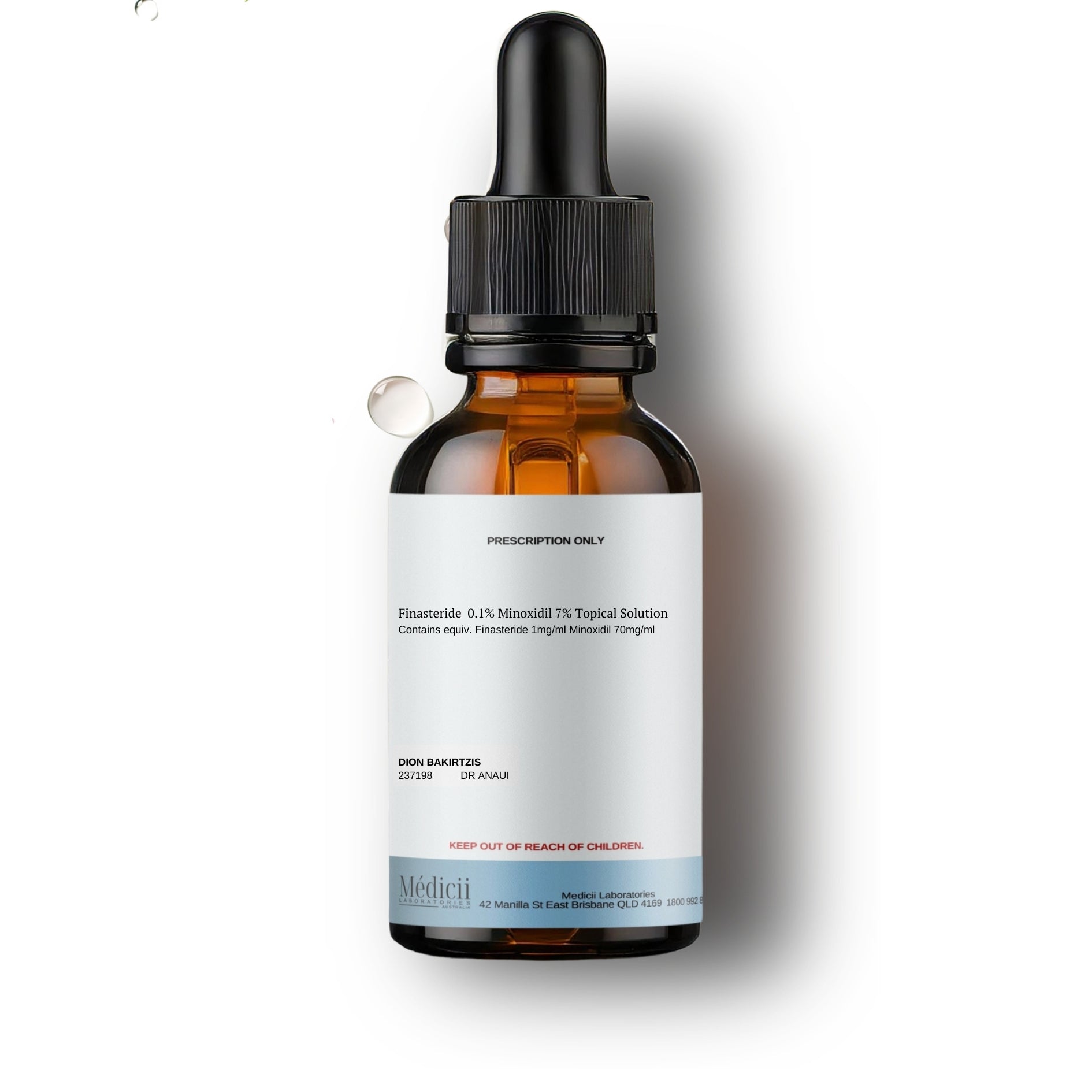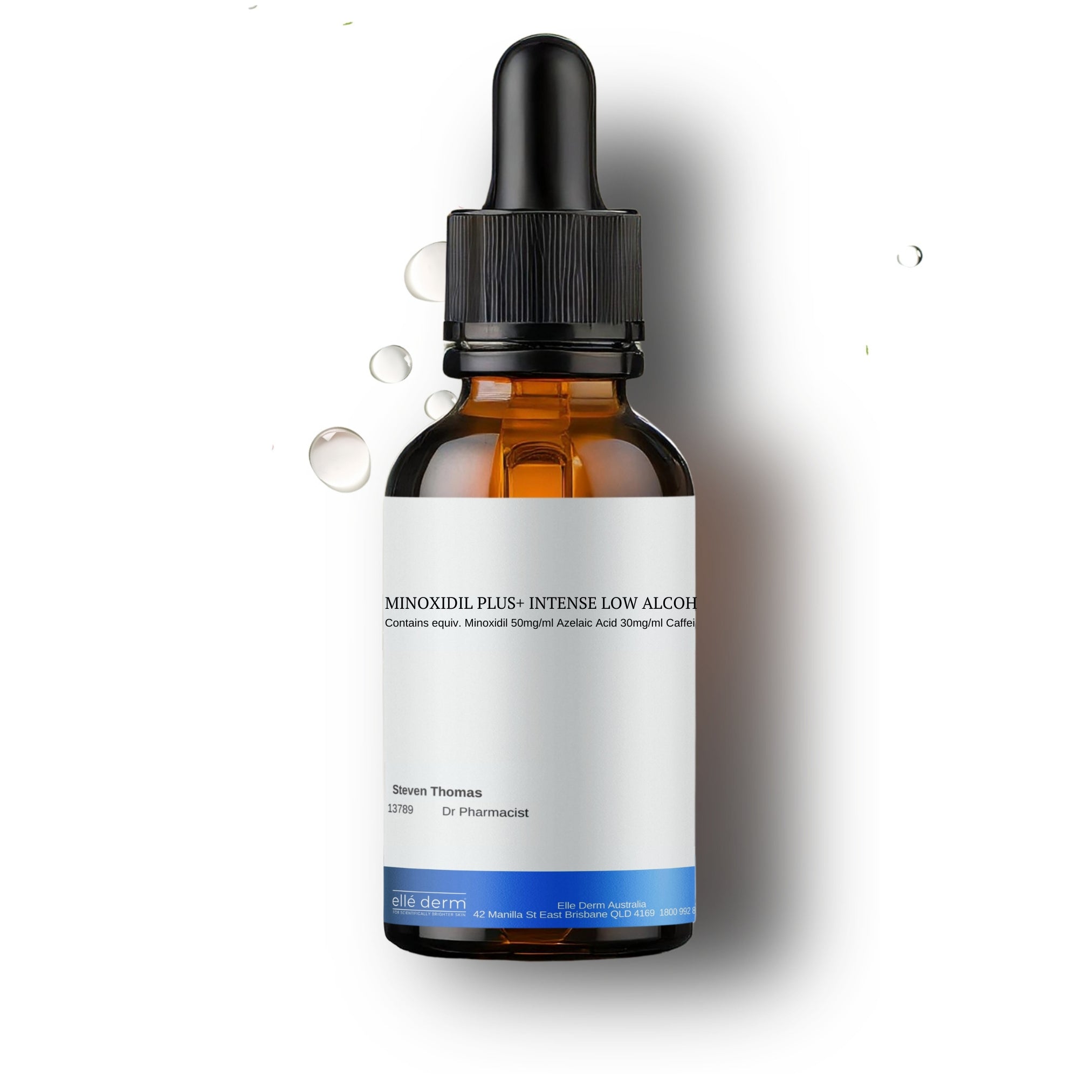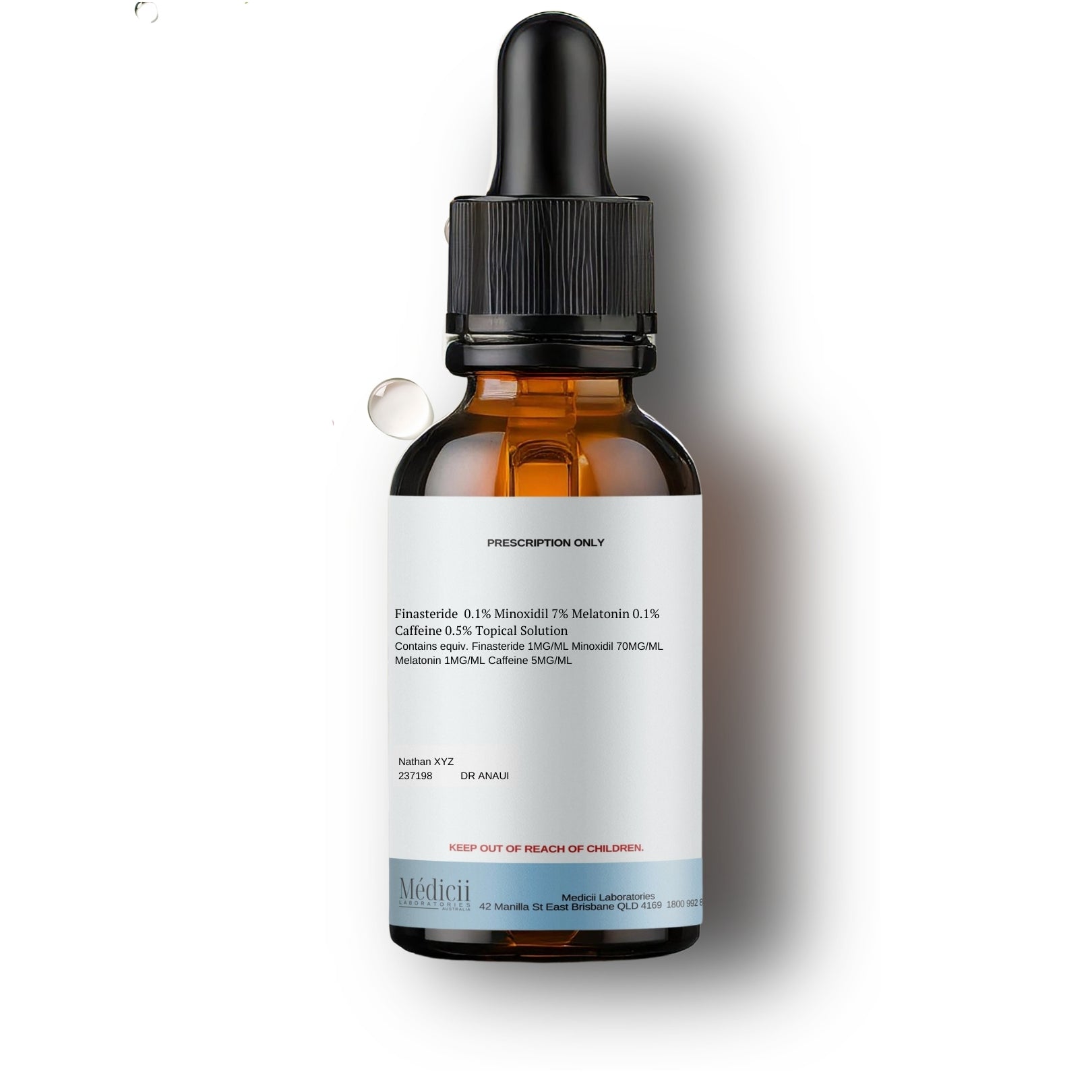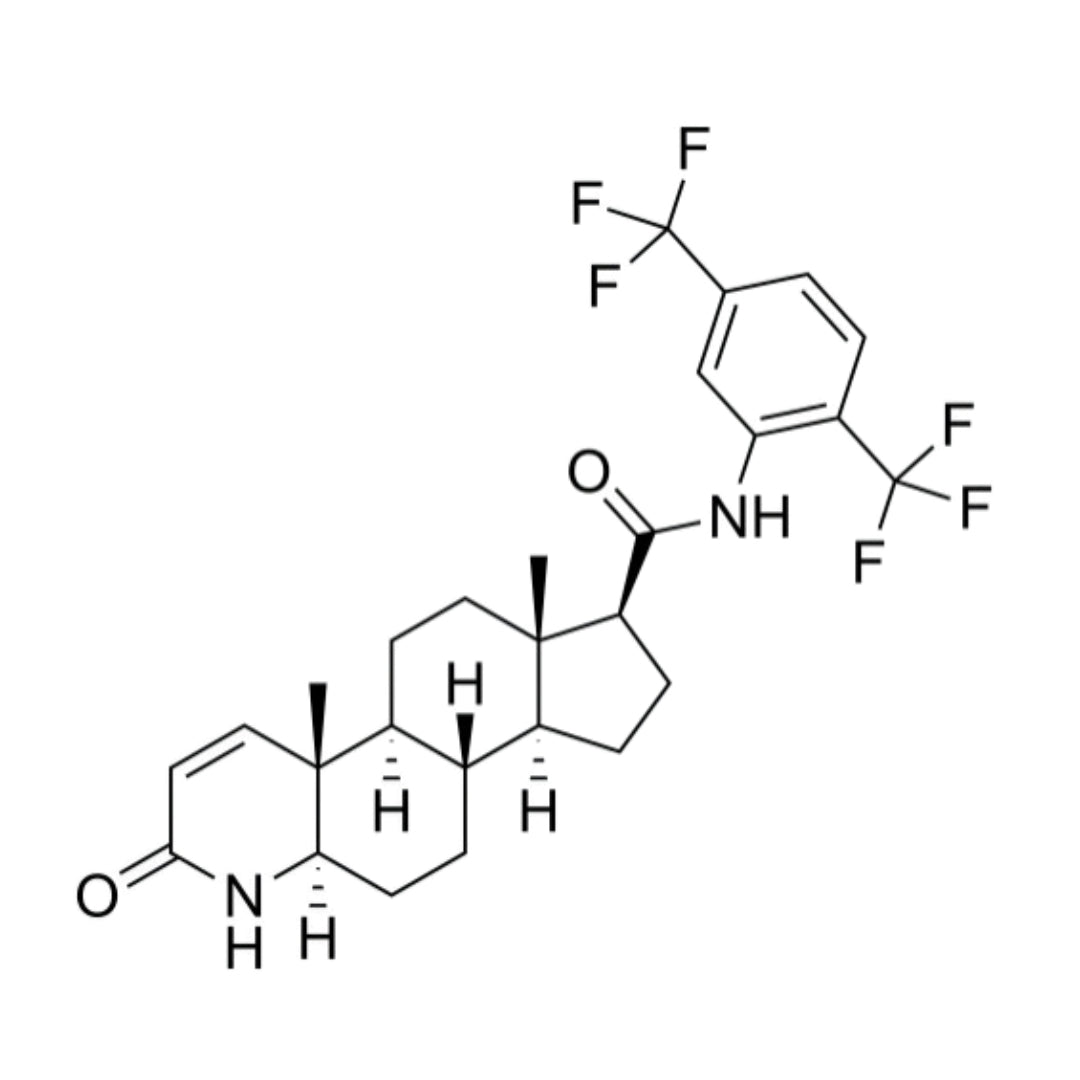
Topical Dutasteride for Hair Loss in Men
Dutasteride is the cousin of Finasteride, another 5-alpha reductase inhibitor, except this cousin does not waiver.
In this article, we explore:
- What is Dutasteride and how it works
- Can Dutasteride be used topically
- The potential side effects of topical Dutasteride
Dutasteride was originally FDA and TGA approved for the treatment of prostate hypertrophy (enlargement) by inhibiting the 5-AR enzyme from converting testosterone to dihydrotestosterone (DHT). The mechanism of action is similar to Finasteride, except Dutasteride binds to both isoenzymes subtype I and subtype II. Conversely, Finasteride binds to only the isoenzyme subtype II.
Dutasteride also has a longer half-life compared to Finasteride (this means it takes longer to break down and clear from the body). Clinically, oral Dutasteride is more effective compared to Finasteride when it comes to reducing serum DHT levels (90% vs 70% respectively). However, can we reproduce the same results from oral dutasteride to topically applied formulations?
Let's find out.
Where is topical Dutasteride currently being used?
Topical Dutasteride is popular in countries like Japan and Korea and is also currently used in the US for men who do not respond to Finasteride or Minoxidil.
A recent study conducted in South Korea compared the efficacy of topical Finasteride vs topical Dutasteride. The study published by Gwang-Seong et al demonstrated that Dutasteride produced promising results when it comes to regrowing hair in men compared to Finasteride with no statistically significant adverse events between the two groups. Men in the Dutasteride group were slightly older than the Finasteride group. Results showed that the Dutasteride group benefited with more hair growth. The study concluded Dutasteride could be beneficial in older men, however, more studies are required in this area of interest.

What is the major issue faced with topical Dutasteride?
Dutasteride is a large molecule and does not penetrate the skin very well. The absorption of Dutasteride into scalp tissue can be improved using interventions such as mesotherapy. Dutasteride mesotherapy involves injecting a saline solution containing Dutasteride into scalp tissues where there is evidence of thinning or balding.
A recent study published in 2022 found that patients receiving dutasteride mesotherapy were able to regrow hair with minimal adverse effects. The study concluded that dutasteride mesotherapy was effective in male and female hair loss in clinical practice and that the side effects related to the treatment were mild and self-limited. The most interesting thing to note from this study is there were 541 patients enrolled but only 86 patients were assessed after one year - what happened to the other 455 patients?
Newer studies are currently being evaluated combining micro-needling and topical Dutasteride. The consensus is that small micro-wounds will help deliver Dutasteride into scalp tissue in the same manner as combining micro-needling and Finasteride and/or Minoxidil. So far, studies show that micro-needling combined with topical Dutasteride is far superior to micro-needling alone. More studies are needed to compare Dutasteride mesotherapy vs Dutasteride plus micro-needling.
What are the potential side effects of topical Dutasteride?
Similar to its cousin, there are concerns around erectile dysfunction, decreased libido, and changes in sperm parameters. In a meta-analysis comparing sexual adverse effects with oral dutasteride vs intradermal dutasteride vs placebo in androgenic alopecia, there were no studies that reported sexual adverse effects with intradermal dutasteride treatment.
It is postulated that the Dutasteride molecule is far too large to result in significant systemic absorption - or at least not enough to cause side effects. Keep in mind studies are still limited.
Conclusion
The purpose of developing novel topical therapies is to reduce adverse effects without limiting hair growth and so far, Dutasteride mesotherapy have proven to provide similar benefits as oral dosing with limited adverse effects.
Topical Dutasteride is still a relatively new field and may be an effective option for patients who do not respond to Minoxidil or Finasteride (and vice versa). If you choose this path, always work with an experienced medical provider in this area of interest.
References
- Saceda-Correlo, D et al. Mesotherapy With Dutasteride for Androgenetic Alopecia: A Retrospective Study in Real Clinical Practice. Journal of Drug and Dermatology. 2022;21(7):742-747. doi:10.36849/JDD.6610.
- Gwang-Seong, C et al. Long-Term Effectiveness and Safety of Dutasteride versus Finasteride in Patients with Male Androgenic Alopecia in South Korea: A Multicentre Chart Review Study. Ann. Dermatology. 2022 Oct; 34(5): 349–359.
- Abdallah, M et al. Mesotherapy using Dutaseride containing solution in male patter hair loss: a controlled pilot study. Departments of Dermatology and Venereology; Faculty of Medicine. February 2009.

